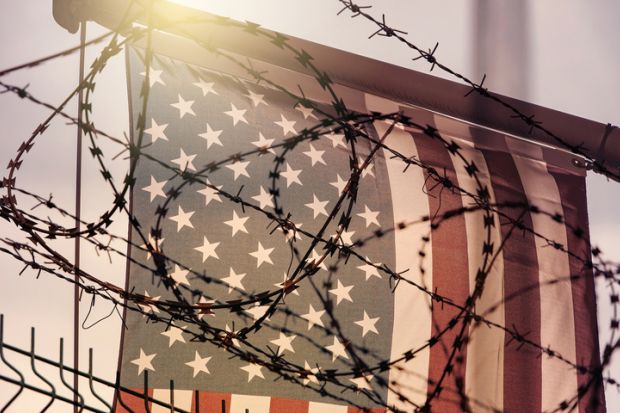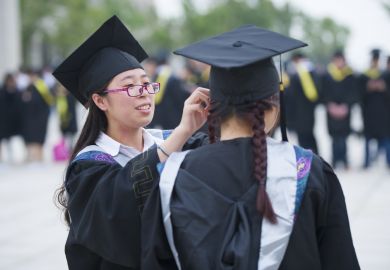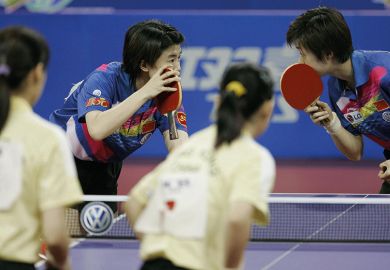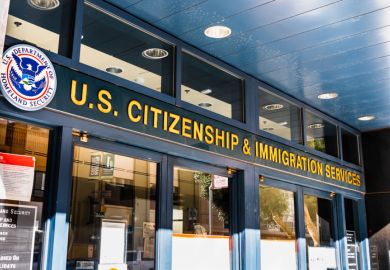Chinese students denied US student visas on security grounds are mobilising to lobby for their return by September.
The Academics No Borders movement was launched after thousands of Chinese students enrolled in US universities received a “blanket visa rejection” due to Proclamation 10043. This rule, passed in May 2020 during the Trump administration, is meant to “suspend entry of Chinese students and researchers connected to the PRC’s military-civil fusion strategy”.
It covers any Chinese national who has studied or worked at military-linked institutions, and affects 3,000 to 5,000 Chinese students per year, according to Georgetown University research.
For most of the 372,000 Chinese students enrolled in US institutions, May brought good news as the Biden administration rolled back visa restrictions that had come under criticism in the higher education sector.
However, doors did not open for those who had attended what the Georgetown briefing paper calls China’s “seven sons of national defence”. These include universities such as the Beijing Institute of Technology, the Harbin Institute of Technology and the Nanjing University of Science and Technology.
Most of the affected students are science and engineering postgraduates. However, some are in unrelated areas such as linguistics or graphic design.
Stephanie Kim, faculty director of higher education administration at Georgetown’s School of Continuing Studies, told Times Higher Education that the rule “selectively targets Chinese students and scholars, and assumes that these individuals are engaging in research espionage by virtue of the undergraduate institution that they attended”.
“While concerns over national security are indeed important and valid, Proclamation 10043 uses such broad and sweeping criteria to block visas that it does much more harm than good,” Dr Kim added.
One Chinese student told THE that he had completed a US master’s degree and was now halfway through a US doctorate. However, he has been blocked from the US since he returned to China in 2019 for a family visit.
He felt “sad” and “frustrated” that he was being judged for a college decision he made more than a decade ago, at a university that was not even one of the “seven sons”. He has asked friends to close down his US apartment and is biding his time in China with online courses.
“We’ve been neglected by both sides, maybe because we are a relatively smaller group of students,” he said. “We Chinese students have no influence on the media or politics. The politics are getting very ugly and innocent people are being attacked.”
An ANB spokesperson said that members had met informally with embassy officials and sent joint letters to dozens of US universities. They have also retained the services of a US immigration lawyer to fight their case legally, if need be.
Concerns about national security or intellectual property violations by China-linked academics have been increasing in the US.
In January, the US arrested Gang Chen, a Chinese-born professor at the Massachusetts Institute of Technology, for failing to disclose Chinese government ties while seeking US grant support. Last year, the US arrested Charles Lieber, a Harvard University chemistry professor, for “misleading” authorities about lucrative Chinese partnerships.
Dr Kim feared that, if the current rules are kept, they could have a larger chilling effect.
“Proclamation 10043 has emboldened other legislative efforts that further target Chinese nationals in an ongoing attempt to delegitimise their presence in American higher education,” she said. “All this contributes to a dangerous climate of anti-Asian racism in the United States at a time when the country needs to rectify – not fuel – the pain and trauma we have all witnessed recently.”
Register to continue
Why register?
- Registration is free and only takes a moment
- Once registered, you can read 3 articles a month
- Sign up for our newsletter
Subscribe
Or subscribe for unlimited access to:
- Unlimited access to news, views, insights & reviews
- Digital editions
- Digital access to THE’s university and college rankings analysis
Already registered or a current subscriber? Login








